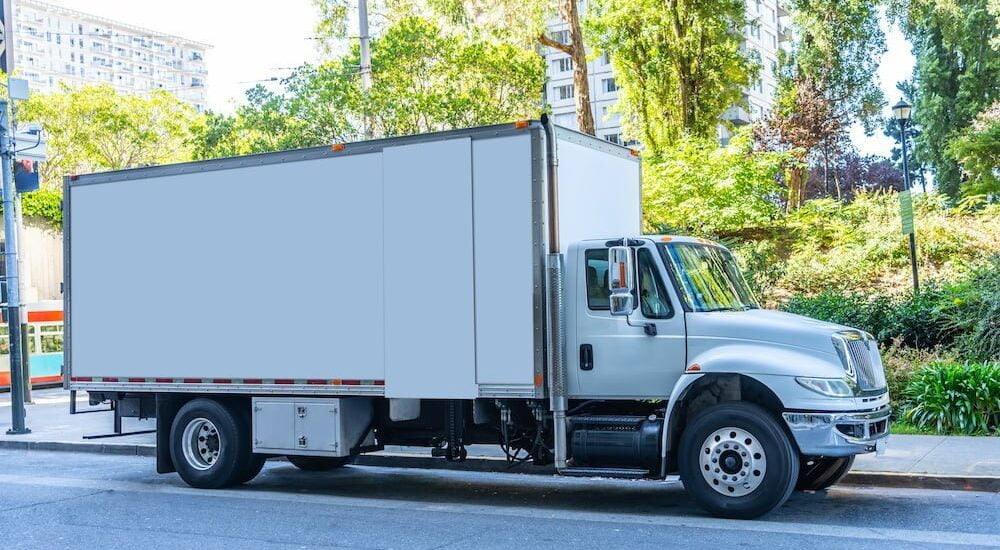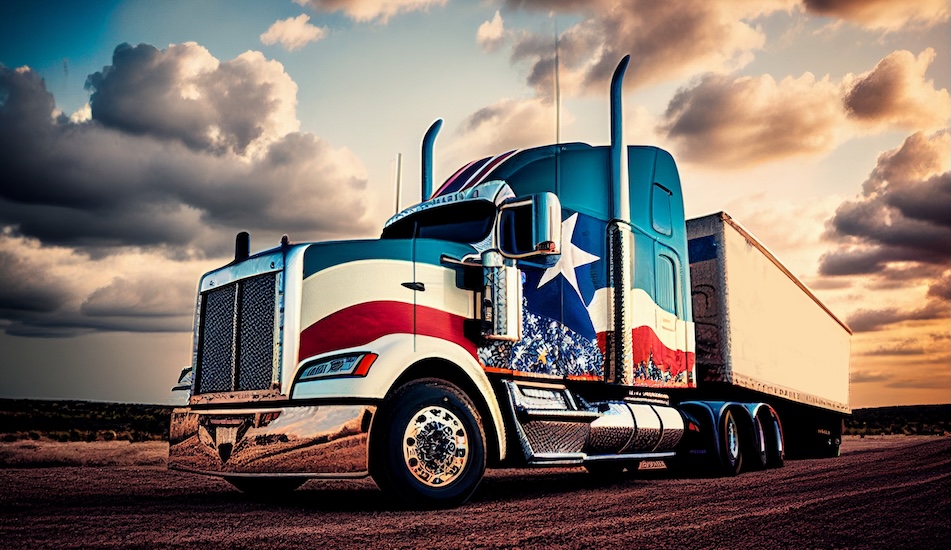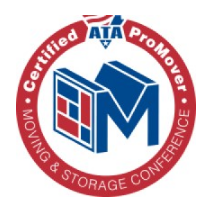What Size Moving Truck Do I Need? [Size Guide & Tips]

Moving can be an exciting yet stressful experience, especially when it comes to figuring out the logistics of transporting your belongings. The key to a successful move is finding the perfect balance between truck size and your needs.
Choosing the right moving truck size is one of the most critical decisions you’ll make. Too small, and you may end up making multiple trips or leaving items behind; too large, and you’ll waste money on unused space.
In the following sections, we’ll explore the different moving truck sizes available, from compact cargo vans to spacious 26-footers. We’ll also discuss factors to consider when making your selection, such as estimating the volume of your belongings and accounting for fragile or oversized items.
By the end of this guide, you’ll be equipped with the knowledge and tips needed to choose the perfect moving truck size for your upcoming relocation. Whether you’re moving across town or across the country, making an informed decision will ensure a smooth and efficient moving process.
Standard Moving Truck Sizes and Dimensions
Moving truck sizes offer a range of options to suit different moving requirements. From compact cargo vans to spacious 26-foot trucks, understanding the dimensions and capacities of each truck size is crucial for planning a successful move.
Cargo Van Sizes and Dimensions
Capacity And Ideal Use
Cargo vans are the most compact option among moving trucks, making them perfect for small moves or transporting a few bulky items. They’re ideal for college students moving into a dorm or studio apartment, or for individuals relocating a small office space, with a capacity of up to 1 room’s worth of belongings.
Typical Dimensions
Cargo van dimensions may vary slightly depending on the rental company. Generally, they have a length of around 9-10 feet, a width of 5-6 feet, a height of 4-5 feet, and a loading capacity of approximately 3,500 pounds.
Small Moving Trucks (10-12 Feet)
Capacity And Suitable For 1-2 Rooms
Small moving trucks, ranging from 10 to 12 feet in length, are suitable for moving the contents of 1-2 rooms. They’re a great choice for individuals or couples moving from a studio or one-bedroom apartment to a similar-sized space.
Loading Capacity And Dimensions
The loading capacity of 10-foot trucks is around 3,100 pounds, while 12-foot trucks can accommodate up to 3,500 pounds. These trucks measure approximately 10-12 feet in length, 6-7 feet in width, and 6 feet in height.
Medium Moving Trucks (15-17 Feet)
Capacity For 2-3 Rooms
Medium-sized moving trucks, ranging from 15 to 17 feet in length, are ideal for moving the contents of 2-3 rooms. They’re suitable for small families or couples moving from a one-bedroom to a two-bedroom apartment or a small house.
Loading Capacity And Dimensions
The loading capacity of 15-foot trucks is around 3,800 pounds, while 17-foot trucks can accommodate up to 4,200 pounds. These trucks measure approximately 15-17 feet in length, 7-8 feet in width, and 7 feet in height.
Large Moving Trucks (20-26 Feet)
Accommodating 3-7 Rooms
Large moving trucks, ranging from 20 to 26 feet in length, are designed to accommodate the contents of 3-7 rooms. They’re perfect for families moving from a two-bedroom apartment to a larger house or for those relocating a fully furnished home.
Loading Capacity And Dimensions
The loading capacity of 20-foot trucks is around 5,500 pounds, while 26-foot trucks can accommodate up to 10,000 pounds. These trucks measure approximately 20-26 feet in length, 8 feet in width, and 8 feet in height.
Specialty Truck Sizes For Larger Moves
For moves that exceed the capacity of a 26-foot truck, some rental companies offer specialty truck sizes or trailers. Their dimensions and capacities vary depending on the specific rental company and the nature of the move, making them suitable for large homes or commercial moves.
Complete Moving Truck Dimensions Guide
Moving truck dimensions are crucial for planning your move and ensuring adequate clearance. This comprehensive guide covers all standard measurements across different truck sizes.
Length, Width, and Height Specifications
Moving trucks typically range from 10 to 26 feet in length, with standardized widths around 8 feet and heights between 10-13 feet. These measurements are critical for parking, garage access, and route planning.
For quick reference:
– Cargo vans: 9’6″ L x 5’7″ W x 5’3″ H
– 10-12 ft trucks: 10′-12′ L x 7’6″ W x 6’6″ H
– 15-17 ft trucks: 15′-17′ L x 7’8″ W x 7’2″ H
– 20-26 ft trucks: 20′-26′ L x 8’2″ W x 8’3″ H
Interior Cargo Space Dimensions
Interior dimensions differ from exterior measurements due to wheel wells, cabin space, and structural elements. Most trucks offer:
– Interior width: 7’3″ to 7’8″
– Interior height: 6’3″ to 7’2″
– Loading deck height: 2’5″ to 3’0″
Moving Truck Size Comparison Chart
Understanding how different truck sizes compare helps you make an informed choice. This comprehensive comparison breaks down each option.
Size Comparison Table
| Truck Size | Interior Space | Weight Capacity | Typical Contents |
|————|—————|—————–|——————|
| Cargo Van | 245 cu. ft. | 3,000 lbs | Studio/Small 1BR |
| 10′ Truck | 380 cu. ft. | 3,500 lbs | 1-2 Rooms |
| 15′ Truck | 760 cu. ft. | 5,000 lbs | 2-3 Rooms |
| 20′ Truck | 1,000 cu. ft. | 6,500 lbs | 3-5 Rooms |
| 26′ Truck | 1,700 cu. ft. | 10,000 lbs | 5-7 Rooms |
Visual Size Guide
Each truck category offers distinct advantages depending on your moving needs. Consider both the physical dimensions and practical loading capacity when making your choice.
Factors To Consider When Choosing A Moving Truck Size
Selecting the right moving truck size is crucial for a smooth and efficient move. To make an informed decision, you need to consider several key factors that will help you determine the most suitable truck size for your specific needs.
Estimating The Volume Of Your Belongings
One of the most critical factors in choosing the right moving truck size is accurately estimating the volume of your belongings. This process involves taking inventory of your possessions and calculating the total cubic footage required to transport them safely.
Conducting A Home Inventory
To estimate the volume of your belongings, start by conducting a thorough home inventory. Go through each room in your house and make a list of all the items you plan to move, including furniture, appliances, electronics, clothing, and any other personal possessions.
Using Online Moving Calculators
Once you have a complete inventory of your belongings, use online moving calculators provided by rental companies or third-party websites. These tools allow you to input the number and type of rooms in your home, along with any additional items, to estimate the total cubic footage required for your move.
Considering The Distance Of Your Move
The distance of your move is another important factor to consider when choosing a moving truck size. For local moves, you may have the flexibility to make multiple trips if needed, allowing you to opt for a smaller truck.
However, for long-distance moves, it’s more efficient and cost-effective to choose a larger truck that can accommodate all your belongings in a single trip.
Accounting For Fragile Or Oversized Items
When selecting a moving truck size, don’t forget to account for any fragile or oversized items that may require extra space or special handling. Ensure that the truck you choose has sufficient space and the necessary equipment, such as moving blankets and straps, to secure these items during transit.
Balancing Truck Size With Rental Costs
While it’s essential to choose a moving truck that can comfortably accommodate all your belongings, it’s equally important to consider the rental costs associated with different truck sizes. Aim to strike a balance between having enough space for your possessions and keeping your rental costs within budget.
Tips For Selecting The Perfect Moving Truck Size
Choosing the right moving truck size can make all the difference in ensuring a smooth and stress-free move. Here are some practical tips to help you make the best decision:
Utilize Moving Truck Size Guides From Rental Companies
Most moving truck rental companies offer detailed size guides on their websites, including information about the truck’s dimensions, capacity, and the approximate number of rooms it can accommodate. Take advantage of these resources to better understand which truck size best fits your needs.
Compare Capacity Recommendations Across Multiple Sources
Don’t rely on just one rental company’s size recommendations. Compare the capacity guidelines provided by different companies and consult online forums, moving blogs, and customer reviews to gather insights from people who have used various truck sizes for their moves.
When In Doubt, Opt For A Slightly Larger Truck
If you’re unsure about which truck size to choose, it’s generally better to select a slightly larger truck. Having extra space is preferable to running out of room and having to make multiple trips or leave belongings behind.
Consider Splitting The Move Into Multiple Trips For Local Moves
If you’re making a local move and have the flexibility, consider opting for a smaller truck and making multiple trips to save on rental costs. Just be sure to factor in the additional time and effort required.
Explore Alternative Options Like Moving Containers Or Full-Service Movers
If you’re still unsure about choosing the right moving truck size or want to explore other options, consider alternative moving solutions. Moving containers, such as those offered by PODS or U-Pack, provide a convenient and flexible way to move your belongings without the need to drive a rental truck.
Another option is to hire top furniture shipping services or full-service movers who will handle the entire moving process for you. When deciding between DIY moving or full-service movers, consider your budget, timeline, and the complexity of your move.
Popular Moving Truck Rental Companies And Their Offerings
When it comes to renting a moving truck, you’ve got plenty of reputable companies to choose from. Each one offers a range of truck sizes and services to fit your unique moving needs.
U-Haul
U-Haul is practically a household name when it comes to moving truck rentals in the US. They’ve got you covered with a wide selection of truck sizes for moves of all shapes and sizes.
Available Truck Sizes And Features
U-Haul’s fleet includes trucks ranging from 10 to 26 feet, so you can find the perfect fit whether you’re moving a studio apartment or a sprawling family home. Their trucks come loaded with features designed to make your move easier, like low decks for effortless loading, gentle-ride suspension for a smooth journey, and fuel-efficient engines to save you money at the pump. If you’re tackling a bigger move, some of the larger truck sizes even include a handy “Mom’s Attic” feature, giving you extra storage space above the cab.
Rental Process And Pricing
Renting from U-Haul is a breeze – you can reserve your truck online, over the phone, or by swinging by your local U-Haul center. The price you’ll pay depends on the size of the truck, how long you’ll be using it, and the distance you’re traveling. U-Haul also offers moving supplies and services to make your life easier, like boxes, packing materials, and even moving labor assistance.
Budget Truck Rental
Budget Truck Rental is another top choice for folks in need of a moving truck. They offer a variety of truck sizes and amenities to help make your move a success.
Truck Size Options And Amenities
Budget’s truck sizes range from 12 to 26 feet, giving you plenty of options to find the right fit for your move. Their trucks boast roomy cargo areas, high ceilings, and tie-down rails to keep your belongings secure during transit. Some truck sizes even include loading ramps, so you can load and unload heavy items without breaking a sweat.
Reservation And Rental Procedure
Reserving a truck with Budget is a snap – just hop online or give them a call. They offer competitive pricing and often have discounts and promotions to help you save a buck. Budget also sells and rents moving supplies like boxes and furniture pads, so you can get everything you need in one place.
Penske Truck Rental
Penske Truck Rental is known for their top-notch, reliable moving trucks. They offer a range of sizes and top-tier customer support to boot.
Truck Sizes And Specifications
Penske’s trucks come in sizes from 12 to 26 feet, all designed with your moving needs in mind. Their trucks feature sturdy ramps, non-slip flooring, and tie-down rails to keep your stuff safe and secure. One of the best perks of renting from Penske is that they offer free unlimited miles for one-way rentals – that can add up to some serious savings if you’re making a long-distance move.
Rental Terms And Customer Support
Renting from Penske is easy and flexible, with both round-trip and one-way rentals available. You can pick up and drop off your truck at different locations, which is super convenient. Penske is also known for their outstanding customer service – they offer 24/7 roadside assistance and have a knowledgeable support team ready to help you every step of the way.
Enterprise Truck Rental
You might know Enterprise for their car rentals, but did you know they also offer moving truck rentals through their Enterprise Truck Rental division? They sure do!
Truck Size Selections And Extras
Enterprise offers moving trucks ranging from 15 to 26 feet. Their trucks are well-maintained and come with handy features like automatic transmissions, air conditioning, and AM/FM radios to keep you comfortable on the road. They also rent additional moving equipment like hand trucks and furniture pads to make your move even easier.
Rental Requirements And Pricing Structure
To rent from Enterprise, you’ll need to be at least 18 years old and have a valid driver’s license. The price you’ll pay depends on the truck size, rental duration, and location. Enterprise offers both round-trip and one-way rentals, and you can purchase additional coverage for extra peace of mind during your move.
Frequently Asked Questions
- How big is a moving truck?
Moving trucks range from 10 feet to 26 feet in length, with typical widths of 8 feet and heights between 10-13 feet. The most common size for a 2-3 bedroom move is a 20-foot truck, offering approximately 1,000 cubic feet of cargo space.
- How big is a 26-foot moving truck?
A 26-foot moving truck is typically 26 feet long, 8’2″ wide, and 8’3″ tall, with an interior cargo space of approximately 1,700 cubic feet. This size can typically accommodate a 5-7 bedroom house or up to 10,000 pounds of household goods.
- What are standard moving truck sizes?
Standard moving truck sizes include cargo vans (245 cubic feet), 10-12 foot trucks (380-450 cubic feet), 15-17 foot trucks (760-850 cubic feet), and 20-26 foot trucks (1,000-1,700 cubic feet). Each size is designed to accommodate specific moving needs, from studio apartments to large homes.
- What happens if I choose a moving truck that’s too small?
Selecting a moving truck that’s too small can lead to multiple trips, which is time-consuming and costly. You might have to leave behind essential items or rent an additional truck, adding to your moving expenses.
- Can I rent a moving truck for a one-way trip?
Yes, most moving truck rental companies offer one-way rentals, allowing you to pick up the truck at one location and drop it off at another. However, one-way rentals may have additional fees or mileage restrictions compared to round-trip rentals.
- Are there any additional costs to consider when renting a moving truck?
There are several additional costs to keep in mind when renting a moving truck, such as fuel costs, insurance or damage waivers, taxes, tolls, and mileage fees (for round-trip rentals). Some companies also charge for additional equipment like moving blankets or dollies.
- What if I need to cancel or modify my moving truck reservation?
Most moving truck rental companies allow cancellations or modifications to reservations, but the specific policies vary. It’s best to review the company’s cancellation and modification policies before making your reservation to avoid any fees or last-minute charges.
- Are there any restrictions on what I can transport in a rental moving truck?
Yes, certain items are prohibited from being transported in rental moving trucks, including hazardous materials, flammable substances, explosives, and illegal or controlled substances. Most companies also do not allow the transportation of pets in the cargo area of the truck.
Conclusion
Picking the perfect moving truck size is a crucial part of planning a successful move. Once you’ve determined the amount of belongings you need to transport, you can select the appropriate truck size to accommodate everything. This will help ensure a smooth and efficient relocation process. By carefully thinking about things like how much stuff you have, how far you’re going, and any special needs, you can make sure your move goes smoothly.
Use the tips we’ve gone over, like knowing the different truck sizes, making a list of your belongings, and using online calculators. Compare options from different rental companies and think about price, extras, and customer service too.
With good planning and the right size truck, you’ll be on your way to a stress-free move in no time. Just remember, a little prep work goes a long way when it comes to making your move a success!
Related Articles
Where to Move from Texas: Top 10 States for Ex-Texans in 2025

Where to Move from Texas: Top 10 States for Ex-Texans in 2025 Record numbers of Texans are exploring life beyond state lines, driven by soaring housing costs, evolving career landscapes, and the search for new lifestyle opportunities. The decision to leave Texas stirs intense emotions – after all, the Lone Star State‘s unique culture and […]
Read MoreHow to Move a House from One Location to Another: Planning to Completion

Relocating an entire house might seem like something out of a movie, but this remarkable feat of engineering happens more often than you’d think. From preserving historic mansions to saving beloved family homes from coastal erosion, house moving represents the intersection of cutting-edge engineering and practical problem-solving. With project costs typically ranging from $18,000 to […]
Read More




